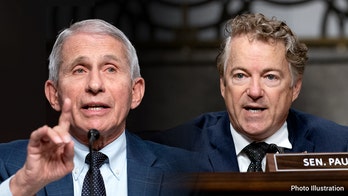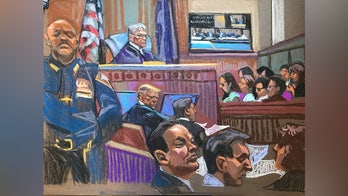Denied all immediate avenues to securing the nomination and working with little more than the sheer force of his personality, Newt Gingrich arrived on the campus of Georgetown Tuesday ready to talk about big ideas and take questions from students – but definitely, it was clear, not from the press.
Whisked in and out of the auditorium by Secret Service, Gingrich effectively dodged the Washington press corp that had gathered in numbers to catch him at his first public appearance since his campaign officially announced it was laying off a third of its already guerilla-sized campaign staff and replacing the campaign manager.
“There are two large principles that led me to decide to run for president,” Gingrich began, in what would be a reiteration of the big ideas address he gave to students at Salisbury University in Maryland the day before. “And it has been an interesting process to try to communicate them and frankly much more difficult than I thought it would be. One was values and the other was innovation.”
He ranted about political leadership: “I would say the greatest frustration I’ve had since leaving the speakership is the denseness of Washington in resisting new ideas.”
He doled out Gingrich-esque words of wisdom: “This is your generations’ greatest problem. You are inheriting from your parents and your grandparents a bureaucratic mess which is stunningly incompetent, following policies that don’t work, based on facts that are no longer true, and surrounded by lobbyists eager to protect the past against the future.”
He talked big ideas: promoting space exploration, investing in brain science research, overhauling the civil service system, becoming energy independent, and creating personal social security savings accounts. He lauded the Wright Brothers. He spoke of FDR.
What he did not do, however, was talk about the state of his campaign. For the ready-made crowd, gathered together without any obvious exertion by his campaign staff, Gingrich did instead what he does best: he was a bully, he was a dreamer, he was a professor, and he was ready to ramble on about anything but the intimate details of his personal life.
So, if a student spoke of Europe, Gingrich was ready to pounce. And when another young man who had been a janitor in high school criticized Gingrich for promoting such work for poor students, the candidate was intent on holding his ground.
A student who declared he was from Spain and “fabulous Europe” asked Gingrich why the U.S. “spends three times what the rest of NATO spends on defense but there’s 14 million uninsured.”
Gingrich’s response? A counter question: “What do you think about a country that’s over 20 percent unemployment."
Student: “Terrible.”
Gingrich: “That’s right. So I’m not trying to pick a fight, I’m just saying let’s be quite clear here, there are some huge problems. You know the number one reason why we spend so much on national defense? Because you don’t."
Then there was the young man named Hector Cendejas, who told the former speaker that as a high schooler he had been a janitor and found the whole experience “embarrassing.”
“My mom was working super hard. I did not feel empowered by serving my classmates. Why not invest on these kids to work for law firms, hospitals, and get paid to develop better skills?” Cendejas said.
Gingrich replied, “Look, I am all for doing that but I would also ask you the question, ‘Did you find it useful financially to earn the money? Was there a reason you were doing it?’”
Cendejas replied that it had been useful for his mother to pay the bills but his peers who had also worked as janitors ended up "pregnant and in gangs and jail."
The speaker had this to say, “Well, I am sorry if you were offended. Both of my daughters worked as janitors at the local Baptist Church and they earned the money and they didn’t think it was demeaning and they actually liked the idea that they earned their own money as kids and they kept their money because they thought work had inherent dignity.”
Cendejas responded, “But they come from a wealthy family.”
Gingrich: “That’s not the point.”
Cendejas: “But they come from a wealthy family, I come from all struggle, you know?”
Gingrich: “I was a college… I wasn’t wealthy, I wasn’t wealthy.” (crosstalk)
The candidate continued, "I guess you and I just disagree and I am sorry. I think, I will just repeat this. In poor neighborhoods, if you can find a way for people to have a job and maybe find a way to keep them in the school.”
This heated exchange was followed by a student who asked Gingrich why there weren’t more politicians like him who offered a “bold vision and big ideas” instead of “focusing on the little things.”
“This is a good question,” Gingrich said happily, getting laughter from the audience. “I mean good in the sense that you’re actually going at the heart of something profound.”




